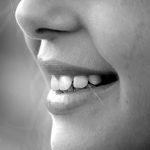The human foot is a masterpiece of engineering and a work of art.
In this article we’re going to talk about the human foot and what they are capable of, the unnecessity of shoes, and how some of the most common foot problems can be avoided.
The Human Foot
Humans are born with a fantastic tool on their body, the feet. The feet and ankles form a strong, mechanical structure that each consist of more than 100 muscles, tendons & ligaments, 33 joints and 26 bones. That means that 1/4 of the bodies bones are all down in the feet. Feet are quite similar to hands from an anatomical perspective and are also equally sensitive (think of feet tickling).
Here’s some more really interesting facts about feet:
- Feet are an important tool for temperature regulation. There’s some 250’000 sweat glands per foot, which ranks the them among the top three sweatiest parts of your body (along with the hands and scalp).
- Just as the hands, the toes and foot sole have a fine structure on the skin, the footprint. This allows for a good grip on the ground.
- The foot soles are very sensitive and give the whole body feedback on how to move and coordinate.
- The feets fatty padding on the sole will thicken over time; it adapts to the terrain.
- The feet are shock absorbers. With every step the impact of the body’s weight on the ground is absorbed. Every toe, bone, joint and muscle is put to work, perfectly, with every step.
Shoes Or No Shoes? That Is The Question
Now that we know how amazing the feet actually are, it is a more than appropriate question to ask why do we even need shoes then? The short answer is: in most cases you don’t.
In several situations shoes are still useful of course, such as protection from extreme temperatures. Although humans even survived ice ages without shoes; a properly adapted foot can handle much broader temperature range than a permanently protected one. Another use is protection from external danger, such as sharp or heavy objects. Lastly it may for ethical reasons to wear shoes.
The one big reason to avoid shoes, is that most of them don’t let you move your feet naturally, thus enforcing an unnatural movement and foot positioning. This is particularly a problem when running; the keyword here is heel-striking. Landing on the heel circumvents the shock absorbing, the shock is sent through the joints, from the ankle to the knee, hip, and up the spine. This can lead to massive health problems over time.
Some other problems of common shoes are:
- Partial side support leads to an uneven strain of the feet
- Elevated heels and toes enforce a permanent unnatural foot position
- Inflexible and stiff soles don’t allow to bend your feet
- Narrow shoes restrict your toes from spreading
- Inability to feel the ground due to thick soles
- Enclosed shoes prohibit the feet to sweat and breath naturally
- Lack of sunlight exposure and inability of the feet to breath promote warts and fungal infections
- Shoes rub your skin, which can lead to blisters
For more information, we recommend this wonderful website by FeetFreex.
Common Foot Problems
Some of the most common problems among runners include:
- Plantar fasciitis
- Achilles tendinitis
- Lower back pain
- Blisters
All of these are indirectly caused by shoes, partially because they encourage heel-striking. Of course you can also heel-strike without shoes, but it hurts.
Going Barefoot
The one simple solution to avoid such problems is to just go barefoot, take of those shoes, as much as you can. When switching to barefoot, some people experience sore achilles tendons or calves, blisters or even metatarsalgia. All of these discomforts will disappear within a few weeks, once the feet have properly adapted to the new strain.
If barefoot is no option, how about some minimalist barefoot shoes?
Once you switch, you’ll probably notice that the feet get slightly wider, your balance and ability to move improves, you’ll have more strength in your feet, and be less sensitive to temperature changes. In short, you’ll feet get healthier, naturally.



